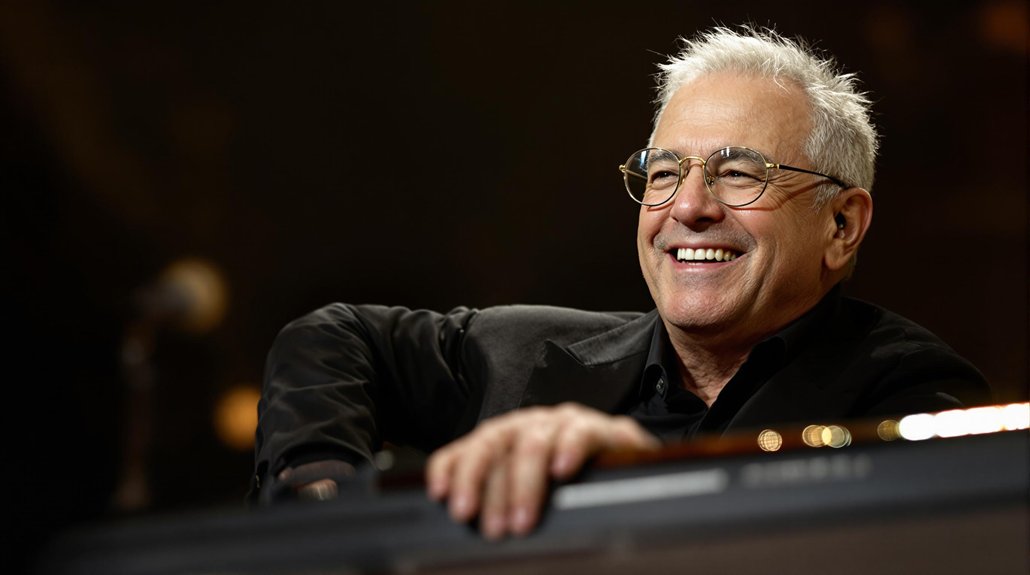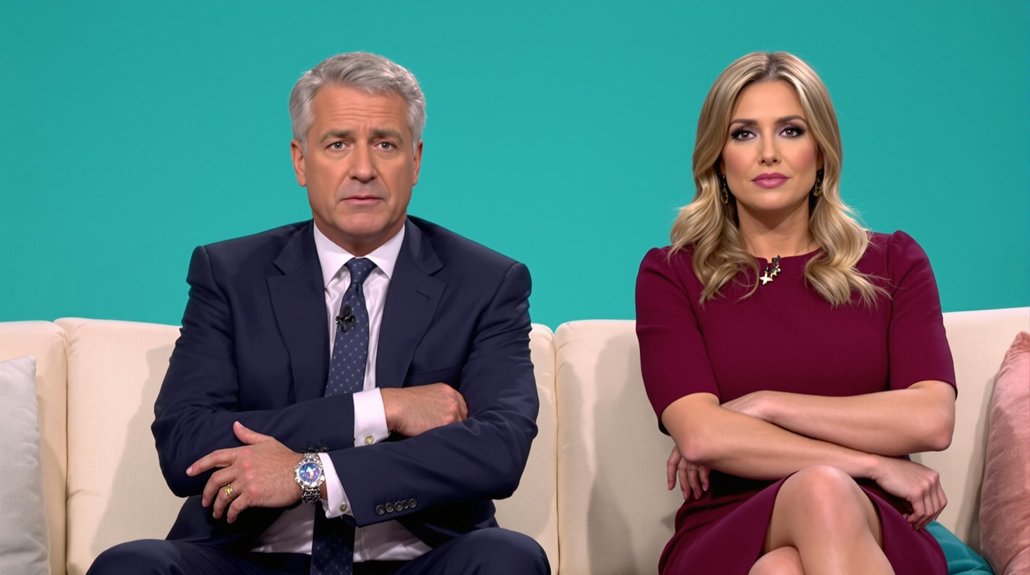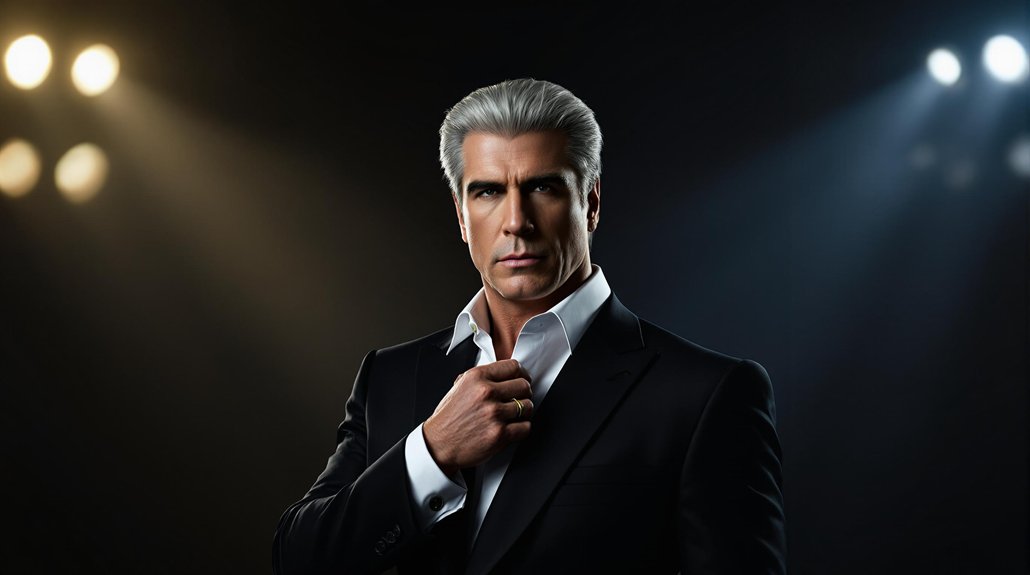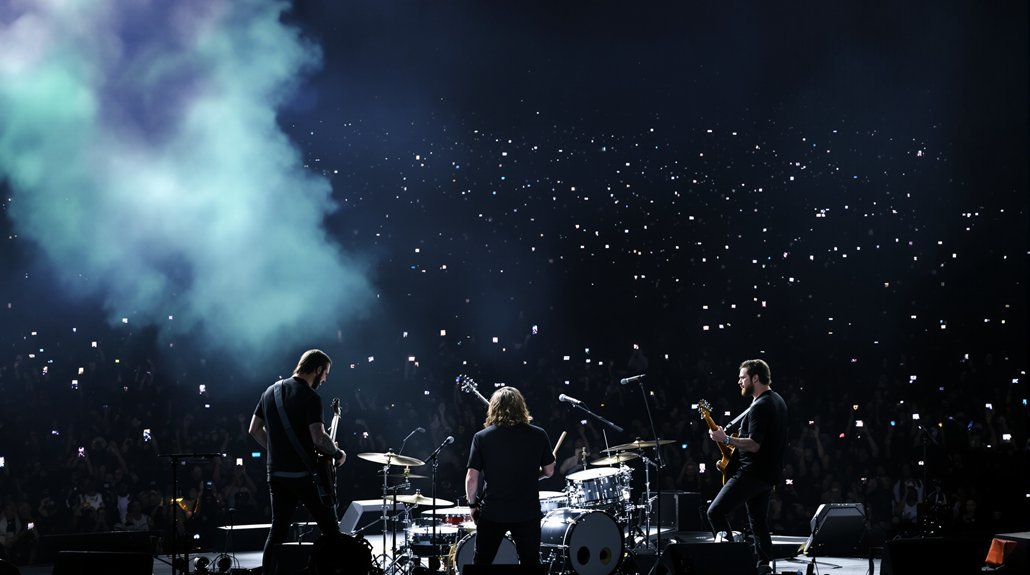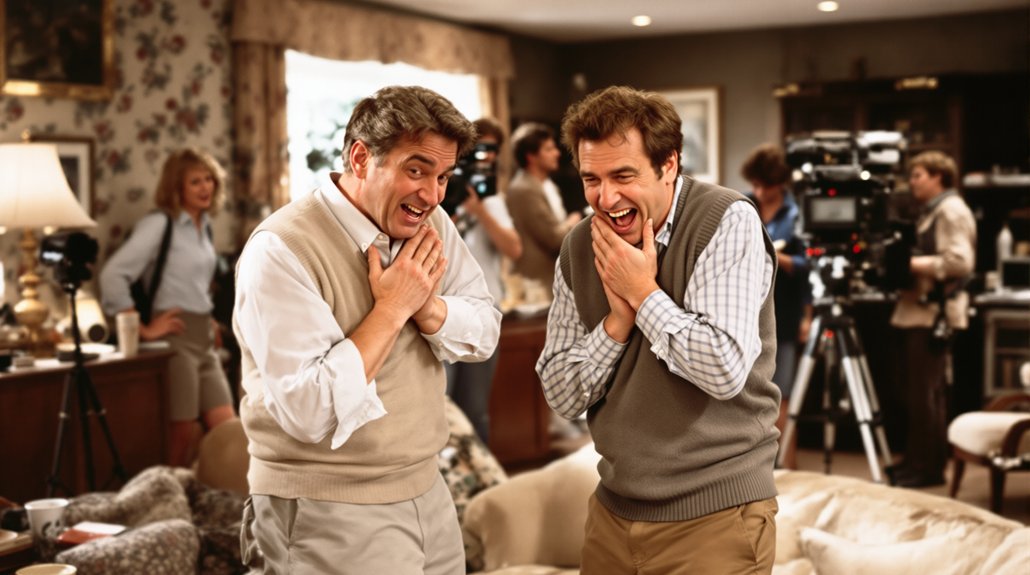Coldplay frontman Chris Martin addressed camera policies during a recent concert performance, delivering playful yet pointed remarks about audience recording behavior following viral footage of Dakota Johnson at a previous show. The comments marked Martin’s first concert appearance since the intimate video gained widespread attention, sparking public discourse about privacy boundaries at live events. Martin used humor to balance entertainment with enforcement of established camera guidelines, emphasizing the importance of maintaining respectful conduct during performances. The incident reflects broader industry trends toward stricter recording rules as artists navigate social media culture and celebrity privacy rights. Further examination reveals the lasting implications for concert etiquette and artist-fan dynamics.
Coldplay frontman Chris Martin addressed camera policies during the band’s recent performance, delivering playful yet pointed remarks about audience recording behavior following viral footage of Dakota Johnson at a previous show. The comments marked the band’s first concert appearance since intimate video of Johnson, Martin’s former romantic partner, gained widespread attention across social media platforms, prompting increased scrutiny of audience recording protocols at live events.
Martin’s statements, delivered with characteristic humor, served as both entertainment and subtle reminders about previously established camera guidelines, particularly regarding the band’s “kiss cam” segments. The remarks directly addressed fan behavior and privacy expectations during live performances, emphasizing the importance of maintaining respectful conduct that preserves both artist and guest privacy while allowing for memorable fan experiences.
Martin balanced entertainment with enforcement, using humor to reinforce camera policies while protecting both performer and guest privacy during intimate concert moments.
The viral incident highlighted ongoing tensions between audience engagement and recording restrictions at concerts, demonstrating how private moments can transform into widespread viral content without consent. The footage sparked significant public discourse about privacy boundaries at public events, with entertainment media analyzing both the relationship implications and broader questions surrounding celebrity privacy rights.
Martin’s response underscored Coldplay’s commitment to creating comfortable atmospheres for performers and attendees alike, using gentle humor to introduce serious discussions about privacy expectations. The band’s approach reflects broader industry trends toward establishing explicit camera policies at shows, with high-profile incidents accelerating adoption of stricter recording rules among major artists. The couple had on-and-off relationship dynamics for eight years before their recent split.
The timing of Martin’s comments, following his recent breakup with Johnson, intensified media attention and fan interest in concert behavior protocols. Entertainment press coverage examined both the immediate aftermath of the viral video and longer-term implications for celebrity relationships in public settings, contributing to ongoing debates about fan freedoms versus privacy rights.
The incident represents part of a continuing evolution in concert etiquette, aligned with increasing social media usage and artists’ desires for curated event experiences. Camera policies now form integral components of performers’ strategies for balancing audience interaction with personal boundaries, as viral moments increasingly shape artist-fan dynamics at future performances and influence staging decisions.

